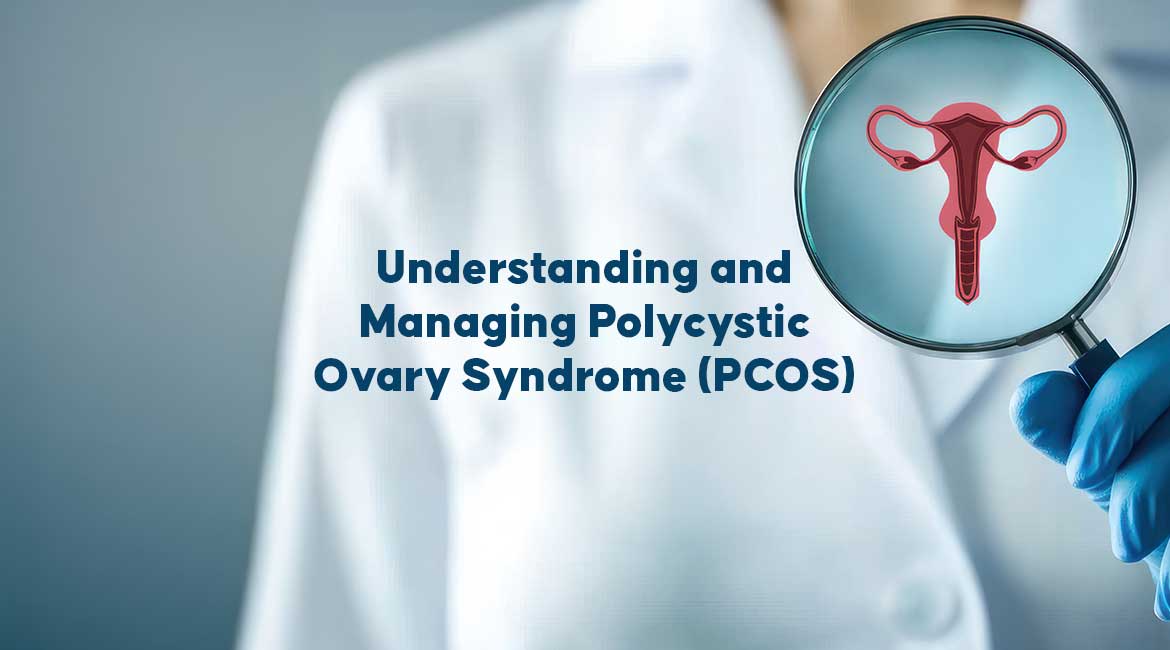Understanding and Managing Polycystic Ovary Syndrome (PCOS)

Polycystic ovary syndrome is a complex hormonal disorder that affects many women during their reproductive years. This condition can disrupt menstrual cycles, alter metabolic functions, and influence emotional wellbeing. Recognizing the early signs is the first step toward effective care and long term wellness.
For many patients, navigating polycystic ovary syndrome involves understanding the range of changes that occur in the body: from irregular periods to subtle shifts in energy levels. Awareness of key indicators, such as emerging PCOS symptoms, empowers women to seek timely help and make informed decisions about their health.
What Is Polycystic Ovary Syndrome?
Polycystic ovary syndrome is an endocrine disorder characterized by hormonal imbalances and, in many cases, the development of small ovarian cysts. This diagnosis not only affects the reproductive system but also has significant implications for metabolism and overall health. A timely diagnosis of polycystic ovary syndrome is crucial in setting the stage for a tailored treatment plan.

The condition is typically diagnosed using a combination of blood tests, ultrasound imaging, and a comprehensive review of the patient’s medical history. With these tools, healthcare professionals can identify the hormonal disruptions that lie at the heart of polycystic ovary syndrome. As research progresses, new insights continue to refine our understanding of this disorder and the strategies for managing it.
Recognizing the Signs and PCOS Symptoms
Early detection of changes in the body is essential for managing polycystic ovary syndrome effectively. Many women first notice subtle PCOS symptoms such as irregular menstrual cycles, unexplained weight gain, or persistent skin issues like acne. These signs serve as important signals that further evaluation might be needed.
Keeping track of PCOS symptoms can be a powerful tool for early intervention. Common indicators include:
- Irregular Periods: Fluctuating cycle lengths or skipped periods.
- Skin Changes: Increased acne or unexpected hair growth.
- Weight Fluctuations: Sudden or unexplained changes in body weight.
Monitoring these PCOS symptoms over time can help both patients and their healthcare providers adjust treatment plans proactively. Early recognition of these indicators plays a key role in mitigating potential complications and improving long term outcomes.
Exploring Medical PCOS Treatment Options
When it comes to managing polycystic ovary syndrome, a range of medical interventions is available. Doctors often recommend PCOS treatment options that focus on hormonal regulation and metabolic balance to address the underlying causes of the disorder. Such options are tailored to each patient’s unique profile, ensuring personalized care.

Some of the most common PCOS treatment options include:
- Hormonal Therapies: Medications like oral contraceptives help regulate menstrual cycles and balance hormone levels.
- Insulin Sensitizing Drugs: Medications such as metformin are used to improve insulin sensitivity, which can be particularly beneficial for patients experiencing metabolic disturbances.
- Anti Androgen Treatments: These therapies aim to reduce the effects of excess male hormones, which can contribute to acne and unwanted hair growth.
Each of these PCOS treatment options is designed to address specific aspects of the disorder. Working closely with a healthcare provider ensures that the chosen treatments are effective and adjusted over time to meet evolving health needs.
Embracing a Natural Approach: Managing PCOS Naturally
In addition to conventional medical treatments, many women are finding success in managing PCOS naturally through lifestyle modifications. For those interested in a more holistic approach, making dietary adjustments, engaging in regular exercise, and reducing stress can have a significant positive impact on overall health.
Strategies for managing PCOS naturally might include:
- Nutritional Changes: Focusing on whole, nutrient dense foods while minimizing processed sugars can help stabilize blood sugar levels and support hormonal balance.
- Regular Physical Activity: Incorporating both aerobic and strength training exercises helps improve metabolism and manage weight.
- Stress Reduction Techniques: Practices such as yoga, meditation, or deep breathing exercises can lower stress hormones and promote a sense of wellbeing.
These natural strategies complement medical therapies and can be an integral part of a comprehensive care plan. By combining conventional treatments with methods for managing PCOS naturally, patients often report improvements not only in their physical symptoms but also in their emotional health.
Addressing PCOS and Fertility Concerns
For many women, concerns about fertility are intertwined with the challenges of polycystic ovary syndrome. Hormonal imbalances associated with the condition can interfere with regular ovulation, making it more difficult to conceive. Addressing PCOS and fertility issues early on is essential for those planning to start or expand their families.

Healthcare professionals specializing in reproductive health work closely with patients to develop strategies that support both fertility and overall hormonal balance. These plans may include:
- Ovulation Induction Therapies: Medications that stimulate the ovaries to produce mature eggs.
- Lifestyle Modifications: Adjustments in diet and exercise can enhance reproductive function.
- Close Monitoring: Regular follow ups ensure that any changes in reproductive health are addressed promptly.
A collaborative approach that focuses on PCOS and fertility concerns allows women to pursue family planning with greater confidence. Early intervention, combined with personalized care, can improve the chances of a successful pregnancy and long term reproductive health.
Comprehensive Strategies for Better Health
Successfully managing polycystic ovary syndrome requires a multifaceted strategy that integrates both clinical interventions and healthy lifestyle choices. Establishing realistic health goals and regularly reviewing progress can empower patients to take charge of their condition. A proactive attitude toward health management is key to mitigating symptoms and enhancing overall quality of life.
Patients are encouraged to maintain regular consultations with their healthcare providers, which allows for timely adjustments based on evolving PCOS symptoms. Integrating diverse approaches—ranging from targeted PCOS treatment options to strategies for managing PCOS naturally—creates a robust framework for long term wellbeing. This comprehensive strategy not only alleviates immediate challenges but also lays the groundwork for improved PCOS and fertility outcomes.
Adopting this balanced approach means considering every aspect of health, from medical interventions to nutrition and exercise. When patients actively participate in their care, the benefits of an integrated treatment plan become evident over time. A dedicated support network and ongoing communication with healthcare professionals are essential components of this journey.
Final Insights on Embracing a Healthier Future
In conclusion, managing polycystic ovary syndrome effectively demands a blend of clinical treatments and lifestyle modifications. Recognizing early PCOS symptoms and exploring a variety of PCOS treatment options empowers patients to address the disorder head on. Whether through medication, natural methods, or a combination of both, a proactive strategy can transform challenges into opportunities for lasting wellness.
Ultimately, by addressing PCOS and fertility concerns with targeted interventions and a commitment to managing PCOS naturally, women can build a brighter future. With continued support, ongoing research, and personalized care, overcoming the obstacles presented by polycystic ovary syndrome is within reach: paving the way for improved health and vitality.




